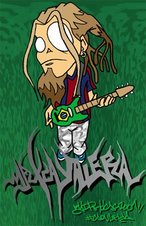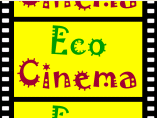You say you want a revolution
Well you know
we all want to change the world
You tell me that it's evolution
Well you know
We all want to change the world
But when you talk about destruction
Don't you know you can count me out
Don't you know it's gonna be alright
Alright Alright
You say you got a real solution
Well you knowwe'd all love to see the plan
You ask me for a contribution
Well you know
We're doing what we can
But when you want money for people with minds that hate
All I can tell you is brother you have to wait
Don't you know it's gonna be alright
Alright Alright
You say you'll change the constitution
Well you know
we all want to change your head
You tell me it's the institution
Well you know
You better free your mind instead
But if you go carrying pictures of Chairman Mao
You ain't going to make it with anyone anyhow
Don't you know know it's gonna be alright
Alright Alright
--------------------------------------------------
This song is not about the need for potecting the earth, but about another value of today's ecological movement, namely non-violence. As a member of the then peace movement, John Lennon was reluctant (if not overtly hostile) about a violent revolution, especially of the Maoist tendency, which had an impact on the youth movement - especially in the French May 1968 insurrection. He was pressed by the leftist press to take a position about the events of the period, and this song was his reaction. Many called him "traitor", but I believe he was firm and faithful to his pacifist principles. Lennon stated his opposition to destruction and hatred that was begining to overwhelm the youth movement. He couldn't do otherwise, since one year before the Beatles were singing "All you need is Love". Remaining firm to his values, he expressed the feelings of many pacifists of his time, as well as many ecologists and greens of today. The principle of "non-violence" is often used as one of the criteria that differentiate the Greens as a political movement from the European Left. The denouncing of political violence by the left parties brings them closer to the Greens.
Well you know
we all want to change the world
You tell me that it's evolution
Well you know
We all want to change the world
But when you talk about destruction
Don't you know you can count me out
Don't you know it's gonna be alright
Alright Alright
You say you got a real solution
Well you knowwe'd all love to see the plan
You ask me for a contribution
Well you know
We're doing what we can
But when you want money for people with minds that hate
All I can tell you is brother you have to wait
Don't you know it's gonna be alright
Alright Alright
You say you'll change the constitution
Well you know
we all want to change your head
You tell me it's the institution
Well you know
You better free your mind instead
But if you go carrying pictures of Chairman Mao
You ain't going to make it with anyone anyhow
Don't you know know it's gonna be alright
Alright Alright
--------------------------------------------------
This song is not about the need for potecting the earth, but about another value of today's ecological movement, namely non-violence. As a member of the then peace movement, John Lennon was reluctant (if not overtly hostile) about a violent revolution, especially of the Maoist tendency, which had an impact on the youth movement - especially in the French May 1968 insurrection. He was pressed by the leftist press to take a position about the events of the period, and this song was his reaction. Many called him "traitor", but I believe he was firm and faithful to his pacifist principles. Lennon stated his opposition to destruction and hatred that was begining to overwhelm the youth movement. He couldn't do otherwise, since one year before the Beatles were singing "All you need is Love". Remaining firm to his values, he expressed the feelings of many pacifists of his time, as well as many ecologists and greens of today. The principle of "non-violence" is often used as one of the criteria that differentiate the Greens as a political movement from the European Left. The denouncing of political violence by the left parties brings them closer to the Greens.
you can hear this song in:
you can also here Revolution (not 1 but live) in:





10 comments:
Revolution 1" is the same song as "Revolution" but is performed in a distinctly different style: slower, with less distortion and more emphasis on acoustic instruments (though electric guitar remains a primary component of the track's sound). Lennon performed most of the vocal take lying on his back in the studio, typifying his ongoing search for new ways of recording his vocals.
"Revolution 1" was recorded between 30 May and 4 June 1968, about 6 weeks before "Revolution", but released nearly three months later than the single. Lennon wanted the initial version to be released as a single but the other band members said it was too slow for a single.
Lennon, slightly irritated, resolved to remake the song in a version as loud and raucous as anything the Beatles had released, and he led the band through the faster recording which ended up backing "Hey Jude". Searching for a highly distorted and 'dirty'-sounding guitar sound, Lennon asked producer George Martin for advice, and Martin suggested routing the guitar output through a highly-overloaded piano amplifier. The resulting highly distorted tone satisfied Lennon and became the distinctive sound of the released version (aigaiopelagitis note: often cited as on of the musical innovations that helped the birth of Heavy Metal).
The original version, re-titled "Revolution 1" to distinguish it from the single version, was released on The White Album in late November 1968.
"Revolution 1" contains a notable lyrical difference to the final "Revolution": Lennon's vocal for the track adds the word "in" following the line "When you talk about destruction/don't you know that you can count me out". Lennon said in interviews that he was undecided in his sentiments toward the song's theme so he included both options.
http://en.wikipedia.org/wiki/Revolution_%28song%29
The lyrics get pounced on typically because of what the FBI might have described as their "anarchic" posture. What I find most remarkable about them is the way they embody that typically Lennonesque ambiguity between tender encouragement and nasty ridicule. Add this one to the list of titles that includes "And Your Bird Can Sing", "Baby You're A Rich Man", and "Hey Bulldog". I mean, is there anyone out there who really believes, after listening to this song, that "it" (whatever the hell it is) is going to be "all right"?
From the page of Allan Pollack:
http://www.icce.rug.nl/~soundscapes/DATABASES/AWP/r.shtml
In the page "Beatles Ultimate Experience" (http://www.geocities.com/~beatleboy1/dba09white.html), I found the famous and extremely important from a political point of view, according to my opinion, comment of John Lennon:
JOHN 1980: "The statement in 'Revolution' was mine. The lyrics stand today. It's still my feeling about politics. I want to see the plan. That is what I used to say to Abbie Hoffman and Jerry Rubin. Count me out if it is for violence. Don't expect me to be on the barricades unless it is with flowers. For years, on the Beatles' tours, Brian Epstein had stopped us from saying anything about Vietnam or the war. And he wouldn't allow questions about it. But on one of the last tours, I said, 'I'm going to answer about the war. We can't ignore it.' I absolutely wanted the Beatles to say something about the war."
So the important line is "count me out". This is what caused the protests, but this also what is important from a non-violent political viewpoint. I read somewhere (I have lost the reference now) that the New Left Review commented that the flipside of Hey Jude version (which lacked entirely the line "count me in") was "a pathetic petty-bourgeois cry of fear", while Nina Simone recorded a reply song entitled "Revolution", within which she called John to "clear his mind".
Perhaps "Revolution" presents some similarities in the meaning with the song "For What It's Worth" of Buffalo Springfield, which was written almost one year and a half earlier (January 1967):
There's something happening here.
What it is ain't exactly clear.
There's a man with a gun over there,
Telling me I got to beware.
I think it's time we stop, children, what's that sound?
Everybody look what's going down.
There's battle lines being drawn.
Nobody's right if everybody's wrong.
Young people speaking their minds,
Getting so much resistance from behind.
I think it's time we stop, hey, what's that sound?
Everybody look what's going down.
What a field day for the heat.
A thousand people in the street,
Singing songs and carrying signs,
Mostly say, “Hooray for our side.”
It's time we stop, hey, what's that sound?
Everybody look what's going down.
Paranoia strikes deep:
Into your life it will creep.
It starts when you're always afraid.
You step out of line, the man come and take you away.
According to the web page "Reason to Rock": The beauty of this song is that it manages to warn of increasing polarization and violence in American society, without taking any stand other than that of acceptance of diversity and free speech. In other words, it comments on politics without itself being political. And while Stills includes comments on authority, he seems to mainly address his peers, subtly warning that strident defense of their positions — and attacks against their opponents' — might threaten the very freedoms, attitudes and life styles they are seeking to protect.
http://www.reasontorock.com/tracks/for_what_its_worth.html
you can hear it in youtube:
http://www.youtube.com/watch?v=vJV44YV69z0
I reflected again on the comments in the page of Allan Pollack, and I think that I disagree. My opinion is that Lennon wanted a specifically relaxed tone for the particular song, somewhat in the mood of Eastern Philosophies and Maharishi's meditations. It also coincides with a non-violence approach to politics. It's not the same thing with the urgent, riotous, angry temper of violent revolutionaries. It is a hippy approach, a revolution with flowers, a conscientious revolution. That's why "it's gonna be alright" and that's why John wanted a slow pace for the song initially.
Λοιπόν, έχω αρκετές πληροφορίες στην άκρη για αυτό το τραγούδι, οπότε αν θέλεις μπορώ να σου τις στείλω και σε μέιλ... Το White Album είναι από τα αγαπημένα μου, οπότε έχω κυριολεκτικά "ξεσκονίσει" όλα τα τραγούδια! Αν θες πες μου, οκ; Είναι πολύ κρίμα να έχω σε μια άκρη τόσες πληροφορίες και να τις τρώει η σκόνη!
great ,,, thx so much
It can't really have success, I consider like this.
Hey awesome blog.. its great.. i really like the way you wrote your views in this blog... i found it very interesting to read...
Here, I do not really suppose this will have effect.
Post a Comment